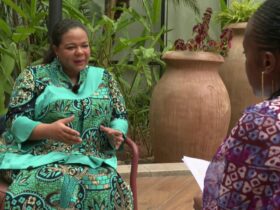The Financial Times was misled by individuals calling themselves economists and researchers, claiming to have a scoop of the year uncovered through research: “Rwanda is manipulating poverty figures and the world doesn’t know!” For that, they quoted an expert professor on the subject and a young lady who testified to living in untold poverty, which the Rwandan government sweeps under the carpet.
The story sounded sensational enough and FT jumped on the bandwagon. Here is the article: https://www.ft.com/content/683047ac-b857-11e9-96bd-8e884d3ea203
After FT, France 24 picked it up, quoting FT, then the Economist quoting France 24, then the ‘experts’ – originators of the story quoted the Economist and France 24, in 48 hours the circle was complete.
Then it all started to unravel. The impoverished young lady turned out to be a millionaire’s daughter living lavishly in uptown Kigali, the quoted Economic Expert was, in reality, a known lawyer, former advisor to the defeated genocide regime, banished from Rwanda since 25 years, while the main author of the article was some sort of a linguist-internationalist with no economic expertise whatsoever: here is his profile: https://www.e-ir.info/author/stephen-paduano/
The alleged scoop too turned out to be a rehashed fallacy from five to six years ago, frequently debunked by the IMF and the World Bank – It was a debacle…
When real economists saw the articles, they were furious. First, Rwanda’s Institute of Statistics responded. Not used to ‘politrics’, they limited their response to explaining the research methodology: http://www.statistics.gov.rw/press/press-release/nisr-refutes-financial-times-article-rwanda’s-poverty-trends
Then the World Bank responded on their website, standing by Rwandan figures and explaining in simple terms why the methodology is reliable: Here is the statement from the World Bank: https://www.worldbank.org/en/news/statement/2019/08/16/world-bank-statement-on-rwanda-statistics?cid=SHR_SitesShareTT_EN_EXT
After the World Bank, it was the turn of Rwanda’s Finance Minister, quoting a report of the International Monetary Fund and expressing his dismay in FT becoming a platform of propaganda… It didn’t help that after having his scoop published, the ‘linguist’ had indulged in a self-promoting tweeter frenzy, abusing the Rwandan government, the president, the people, etc., totally astray from his initial economic claims – thereby revealing his real agenda: that of an untethered anti-Rwanda political activist
At this point, the pressure was too high that the Financial Times was forced to publish the rebuttal from the Rwandan Minister: https://www.ft.com/content/c66d2982-c006-11e9-89e2-41e555e96722?segmentid=acee4131-99c2-09d3-a635-873e61754ec6
And that marked the end of a preposterous debate, where defeated political activists with known bias and dubious credentials, use international media to question reliable data from qualified economists and world bodies.
A few days earlier, the President had remarked to the disparaging article from Financial Times: ‘if they say the data is toeing my line, then it must be a good
















Ergonomic Granite Computer